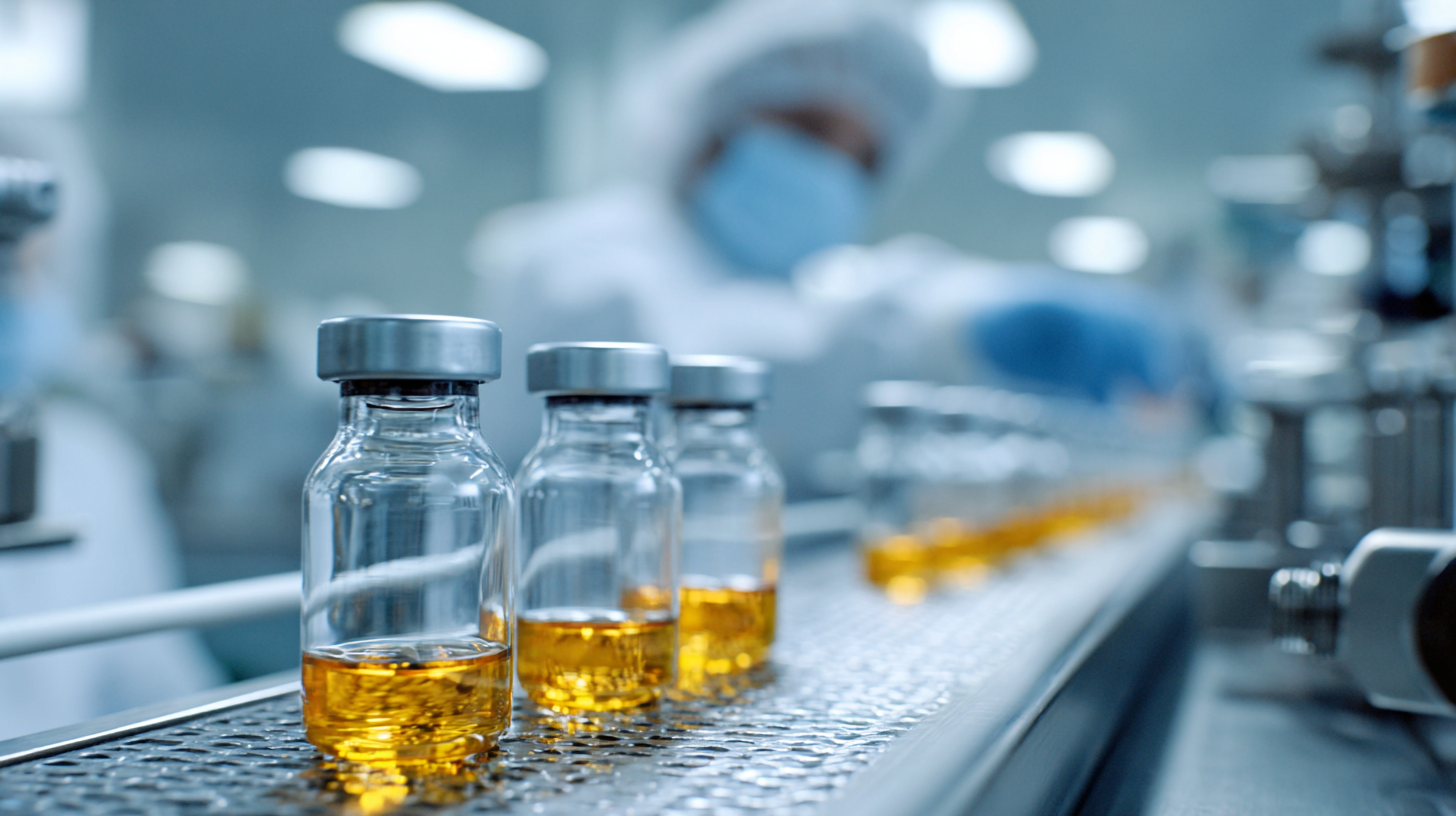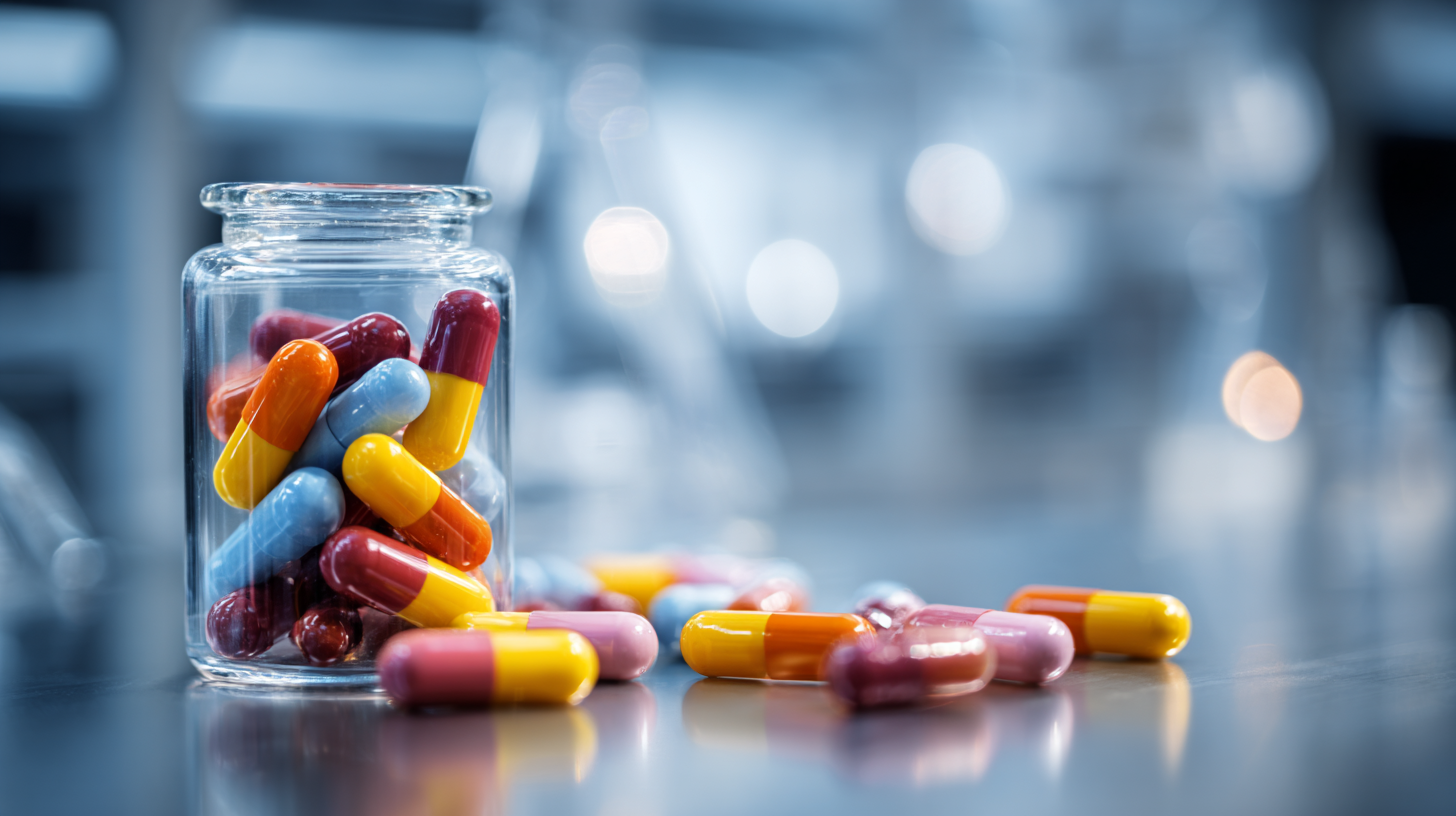Ensuring Compliance: Industry Standards for the Production of Best Valaciclovir HCl in Global Markets
In the rapidly evolving pharmaceutical landscape, ensuring compliance with industry standards remains paramount, especially for the production of Valaciclovir HCl, a crucial antiviral medication used in the treatment of herpes simplex infections and shingles. According to a recent report by Research and Markets, the global antiviral drug market is projected to grow at a CAGR of 6.2%, highlighting the increasing demand for high-quality formulations of potent drugs like Valaciclovir HCl. As we approach 2025, manufacturers must navigate stringent regulatory frameworks and implement advanced technologies to enhance product efficacy and safety, while also complying with Good Manufacturing Practices (GMP). This blog will explore the essential industry standards and technological advancements shaping the production of Valaciclovir HCl, ensuring that it meets the stringent expectations of both regulatory bodies and consumers on a global scale.

Innovations in Valaciclovir HCl Production Technology for 2025
The production of Valaciclovir HCl is poised for significant innovations in 2025, driven by advancements in manufacturing technology and a focus on sustainability. As the global market for antiviral drugs continues to expand, projected to exceed $60 billion by 2026 according to a recent report by Fortune Business Insights, pharmaceutical manufacturers are under increasing pressure to enhance efficiency and compliance with stringent industry standards.
One of the most promising developments in Valaciclovir HCl production technology is the integration of continuous flow synthesis methods. This approach not only reduces production times but also minimizes waste, making the process more environmentally friendly. A study published in the Journal of Pharmaceutical Sciences highlights that continuous flow techniques can improve yield by up to 30% while maintaining product quality, a critical factor in meeting the compliance standards set by regulatory authorities like the FDA.
Moreover, innovations such as real-time analytics and process automation are transforming pharmaceutical manufacturing. Advanced monitoring systems enable better quality control, ensuring that every batch of Valaciclovir HCl meets the rigorous standards required in global markets. Industry reports indicate that companies adopting these technologies are seeing not only improved compliance rates but also a considerable reduction in operational costs, enhancing their competitive edge in an increasingly crowded marketplace.
Key Regulatory Standards Impacting the Global Market for Valaciclovir HCl
The production of Valaciclovir HCl, a widely used antiviral medication, is subject to a variety of regulatory standards that ensure its safety, efficacy, and quality in global markets. Among the key regulatory bodies involved are the Food and Drug Administration (FDA) in the United States and the European Medicines Agency (EMA) in Europe. These organizations impose strict guidelines on the manufacturing processes, quality control measures, and clinical trial requirements that pharmaceutical companies must adhere to. Compliance with these standards is crucial not only for market access but also for maintaining patient trust and ensuring effective treatment options.

One effective tip for companies navigating these regulatory landscapes is to invest in a robust quality management system (QMS). Establishing a comprehensive QMS can streamline compliance efforts and foster a culture of continuous improvement. Regular training and updates on regulatory changes can also equip staff with the necessary knowledge to maintain compliance.
Additionally, forming strategic partnerships with regulatory consultants can provide invaluable insights into the nuances of global standards. These experts can help companies interpret complex regulations and prepare for inspections, ultimately reducing the risk of non-compliance and associated penalties.
Sustainability Practices in the Manufacturing of Pharmaceutical Products
Sustainability is becoming increasingly integral to pharmaceutical manufacturing, as companies seek to minimize their environmental footprint while maintaining high-quality standards. The industry is witnessing a shift where sustainable practices are no longer optional but essential for long-term viability. As inflation pressures rise, manufacturers are compelled to explore cost-effective sustainable alternatives, creating a unique opportunity to innovate in production methods that reduce waste and energy consumption.
Leading firms are prioritizing sustainability at the core of their operational strategies. By focusing on eco-friendly practices, these organizations are not only enhancing their product offerings but also contributing to responsible healthcare delivery. Initiatives such as reducing carbon emissions and improving resource management are gaining traction, showcasing the pharmaceutical industry's commitment to a greener future. As evidenced by recent sustainability reports, many companies are making strides towards achieving impactful social and environmental goals, thereby setting a precedent for industry-wide transformation.
Ensuring Compliance: Production Standards of Valaciclovir HCl Globally
Future Challenges in Ensuring Quality Control for Valaciclovir HCl
As the global demand for Valaciclovir HCl continues to rise, maintaining stringent quality control standards presents significant challenges for manufacturers. The landscape of pharmaceutical production is constantly evolving, influenced by regulatory updates, technological advancements, and shifting market dynamics. It is crucial for companies to stay ahead of these changes to ensure compliance and product efficacy.
One major challenge is the implementation of robust testing protocols to guarantee that each batch of Valaciclovir HCl meets established standards. With the advent of more sophisticated quality assurance techniques, manufacturers must invest in state-of-the-art testing equipment and trained personnel. Regular audits and collaboration with regulatory agencies can help identify potential pitfalls early in the production process.
**Tips for Ensuring Quality Control:**
- Establish a comprehensive training program for staff to remain updated on best practices and compliance requirements.
- Invest in advanced analytical methods, such as high-performance liquid chromatography (HPLC), to enhance detection of impurities and ensure active ingredient potency.
- Foster a culture of continuous improvement by regularly reviewing processes and incorporating feedback from quality control teams.
Ensuring Compliance: Industry Standards for the Production of Best Valaciclovir HCl in Global Markets - Future Challenges in Ensuring Quality Control for Valaciclovir HCl
| Parameter | Current Standard | Future Challenges |
|---|---|---|
| Purity Level | ≥ 98% | Increase in Impurities Due to Raw Material Variability |
| Production Batch Size | 100-200 kg | Maintaining Consistency Across Different Production Batches |
| Active Ingredient Specifications | Compliance with Pharmacopoeial Standards | Adaptation to New Regulatory Requirements |
| Testing Methods | HPLC, UV Spectroscopy | Integration of Advanced Techniques (e.g., Mass Spectrometry) |
| Regulatory Agencies | FDA, EMA, WHO | Global Harmonization of Quality Standards |
| Quality Management Systems | ISO 9001 Compliance | Adapting to Continuous Improvement Practices |
Market Trends: Adapting to Consumer Demand in the Pharmaceutical Industry
In the rapidly evolving pharmaceutical industry, adapting to consumer demand is paramount, especially for critical medications like Valaciclovir HCl. Recent market trends indicate an increasing preference for high-quality, affordable medications, prompting manufacturers to innovate while maintaining compliance with stringent industry standards. Companies are investing in advanced technologies and sustainable practices that not only enhance production efficiency but also meet regulatory expectations. This shift not only addresses the immediate needs of consumers but also positions firms strategically in a competitive market.
 Moreover, the growing awareness of health issues due to the pandemic has spurred demand for reliable antiviral treatments. Pharmaceutical companies must be agile, responding to consumer inquiries and preferences with transparency and speed. By incorporating feedback mechanisms and engaging with healthcare professionals, companies can better understand market dynamics and tailor their offerings accordingly. As the global landscape continues to fluctuate, those who prioritize adaptability in their production processes will thrive, ensuring that essential drugs like Valaciclovir HCl remain accessible and effective for patients worldwide.
Moreover, the growing awareness of health issues due to the pandemic has spurred demand for reliable antiviral treatments. Pharmaceutical companies must be agile, responding to consumer inquiries and preferences with transparency and speed. By incorporating feedback mechanisms and engaging with healthcare professionals, companies can better understand market dynamics and tailor their offerings accordingly. As the global landscape continues to fluctuate, those who prioritize adaptability in their production processes will thrive, ensuring that essential drugs like Valaciclovir HCl remain accessible and effective for patients worldwide.





